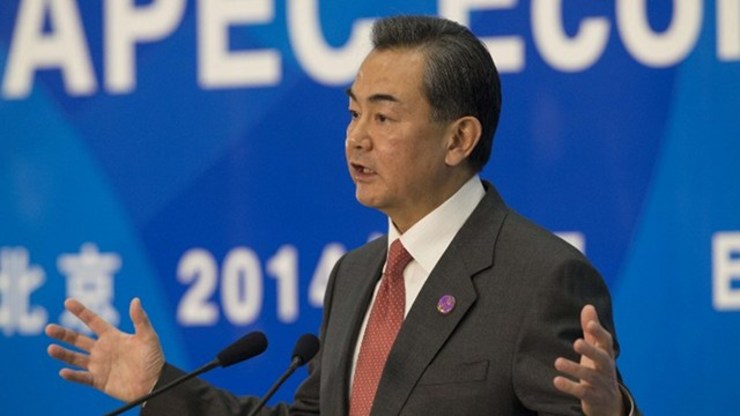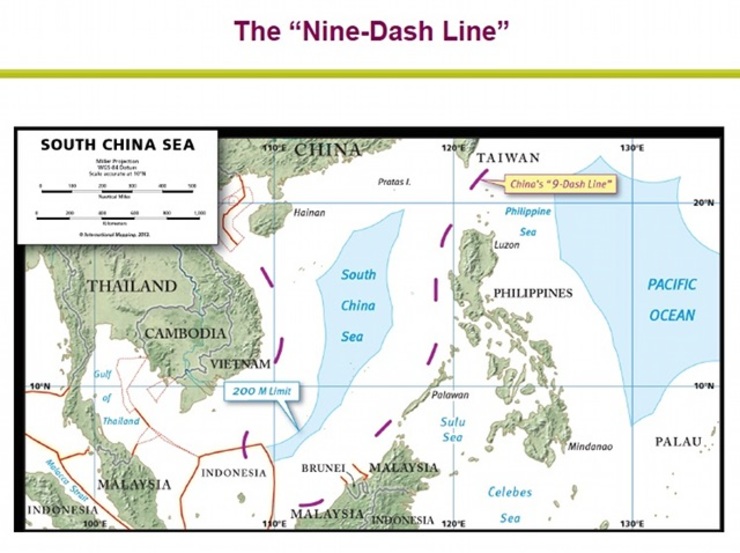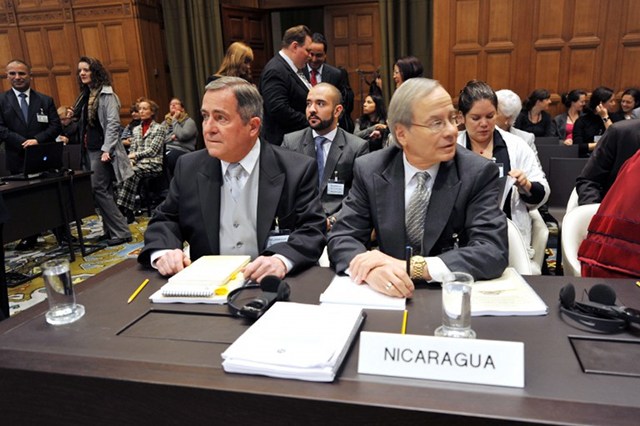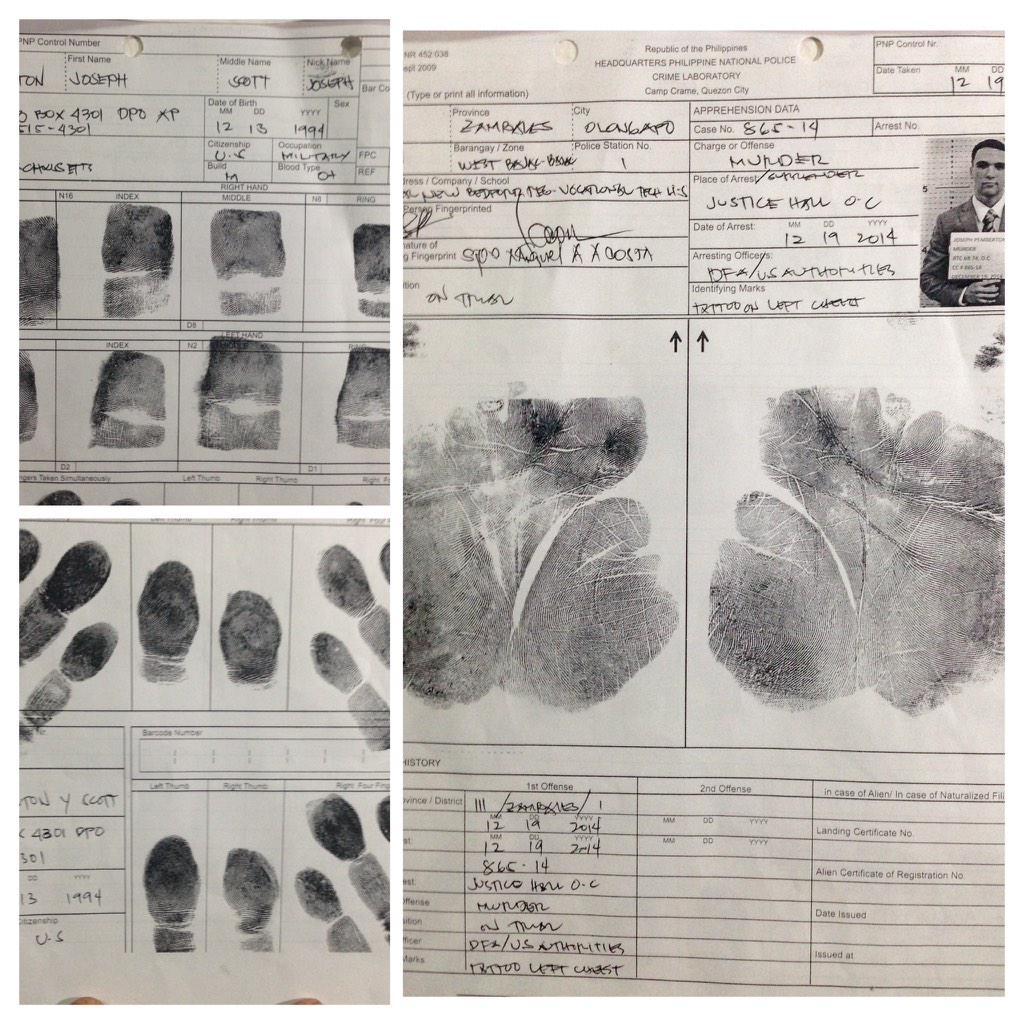Posted to Want China Times (Dec 19):
South China Sea rivals compared by Global Times

An illustration showing the infrastructure the Philippines is
building on Thitu island in the disputed Spratly island group. The Chinese
cartoon suggests a wobbly Philippine flag on an island stamped as Chinese.
(Illustration/CFP)
The threats posed to China by each of the other claimants in the territorial
disputes over the South China Sea were outlined in an analysis piece in China's
nationalistic tabloid Global Times, run by the Communist Party mouthpiece
People's Daily.
Over the last year China has engaged in prolonged standoffs and clashes with
the Philippines and Vietnam and the rich underwater resources that the region is
believed to possess will likely see each claimant build up a substantial
military infrastructure to protect their claims over the next few years.
The
paper listed the threats posed by Vietnam, the Philippines, Malaysia and Brunei;
as China does not acknowledge Taiwan's sovereignty over itself, not to mention
over islands in the South China Sea, Taiwan was conspicuously absent from the
list. Taipei officially shares the same claim over the whole of the South China
Sea as Beijing does and holds the Pratas islands in addition to Taiping, the
largest natural island in the Spratly islands.
Vietnam: Military build-up on nine islands
From the early 1970s to the early 1990s, Vietnam occupied 29 islands and
reefs in the Spratlys and strengthened their defensive infrastructure in the
region.
Vietnam has used two defensive strategies. The first is to set up defensive
positions comprising habitable and permanent defensive structures which can also
serve in battle, forming a strategic defensive infrastructure. The second is
establishing military outposts and guard houses on stilts, to widen the area of
defense. The former are concentrated on nine islands and reefs including Spratly
Island and Southwest Cay. The living conditions in these bases are reasonably
comfortable, so more soldiers are stationed there. The islands of Spratly and
Namyit are the core defensive strongholds of the Vietnamese army in the South
China Sea.
Vietnam has 2,200 soldiers stationed in the Spratlys mainly armed with guns,
tanks, anti-tank missiles and dynamic armed helicopters, but they do not have
any ground-to-ship missiles, due to the complicated support system and permanent
firing structure that they require which none of the islands can facilitate.
A photo set featured in the Hanoi-based Vietnam Pictorial shows nine of the
main nine islands and reefs administered by Vietnam have 23mm anti-aircraft
guns; six of them have 37mm anti-aircraft guns, five have 85mm cannons and two
of them have 122mm howitzers and 130mm cannons; six of the islands have Russian
made T-54/55 medium tanks, four have the Russian-made PT-76 amphibious light
tank, totaling around 120 guns and 60 medium tanks. On Spratly Island and Namyit
Island the Vietnamese army have a 122mm howitzer battalion, an 85mm cannon
company, an 130mm cannon company, two to three 23mm or 37mm anti-aircraft gun
companies and a tank company. Military helicopters can take off from and land on
at least five of the islands and reefs.
From this configuration it is likely that when attacked Vietnam will make use
of its large-caliber artillery to engage enemy warships in a long-range
gunfight. The 130mm cannon has a range of 27 kilometers, a similar range to the
gun on China's destroyers. The range of guns deployed by the Vietnamese troops
is in preparation for long-distance, medium range and close-range defense
against landing troops. To take Spratly as an example, the island has four guns
with a range of over 16km, 21 guns with a range over 14km, 31 guns with a range
of over 10km and 48 guns with a range of over 2km. The army can also make use of
its helicopters to launch air attacks.
In addition to the nine larger islands, the Vietnamese army also has guard
posts stationed at islands and reefs that are more vulnerable to attack, but
these usually consist of a makeshift concrete or shacks on stilts with soldiers
only armed with individual weapons.
Several special units of the Vietnamese army are said to have trained in
amphibious warfare in the Spratlys and the 126th rapid response battalion, set
up in 2005, is said to be Vietnam's answer to the US Navy Seals.
The Philippines: Cannot sustain low intensity warfare
The Philippines is relatively weak in terms of its economy and military power
and its strategy in the region is different. Currently the Philippines
administers eight islands in the region, including Thitu Island and Nanshan
Island. Thitu is the second-largest island in the Spratlys and hundreds of
Philippine civilians live there in addition to 40 soldiers. Conflicting reports
put the total number of Philippine soldiers stationed on the islands at anywhere
from 60-200.
The first group of civilians were sent to live on Thitu in 2001. The island
has a town hall, a school, a clinic, a military barracks, a water treatment
plant, a deep well, a small jetty, a 1,300m runway, a telecommunications base,
an electricity generator and some greenhouses. There are flights between Thitu
and Puerto Princesa in the Philippines.
On other islands, such as West York and Northeast Cay, the Philippines has
only built a few simple structures and some islands, such as Flat Island and
Lankiam Cay, are extremely small, so the army has erected a 10m tall watch tower
on Nanshan and Loaita islands to watch over these islands with the naked eye, so
troops are not actually stationed on them.
A documentary aired by Philippine TV station GMA7 described the daily lives
of soldiers posted to the South China Sea islands. According to the documentary,
there are four soldiers currently posted to Nanshan. A simple wooden structure
has been erected on the island and army ships visit every month to bring fresh
supplies and to change personnel. The four guards are armed with M-16 rifles and
hand grenades.
In May, a high-ranking Philippine army officer told Japan's Kyodo News that
the country plans to deploy two coast guard patrol boats and two surveillance
craft to Thitu; as well as deploying permanent patrol boats to Nanshan and
Commodore Reef; and establishing a Spratlys group (Kalayaan) army task force.
The Philippine officer also said that the country plans to renovate the airport
on Thitu and its bases and observation stations on Nanshan. In October, however,
Manila announced that it had called a temporary halt to its renovation work on
the islands in order not to influence an arbitration judgment which is still
pending.
The Philippines is unlikely to be able to maintain even low-intensity warfare
in the region, however. The army and the air force are mostly concerned with
maintaining order domestically and tackling guerrilla fighters, while the navy
is tasked with maintaining the country's territorial claims in the South China
Sea. The Philippines has three main naval bases in Cavite, San Vicente and
Mactan in Cebu and the majority of its warships and marine corps are located in
the west of the country, bordering the South China Sea — or the West Philippine
Sea, as Manila redesignated it relatively recently. According to a defense
expert cited by the paper, though the Philippines has spent a large sum on
modernizing the army it is still incapable of facing off against China.
Malaysia: Long-term military deployments on five islands
After engaging in military exercises with Australia, New Zealand, the UK and
Singapore in August 1983, Malaysia sent marines to occupy the disputed Swallow
Reef and has administered it since then. In 1986 the country also took over the
administration of Mariveles Reef and Ardasier Reef and in May 1999 it took
control of Investigator Shoal and Erica Reef.
Malaysia has opened a resort on Swallow Reef and has built an airport there.
Currently Malaysia has just over 100 soldiers stationed on five islands and
reefs, mostly at Lima Naval Station on Swallow Reef, Uniform Naval Station on
the Ardasier Reef and Mike Naval Station on the Mariveles Reef.
Malaysia at one time occupied Louisa Reef, which is claimed by Brunei, but
later quietly retreated from the island. Malaysia has placed emphasis on
infrastructure in recent years, importing 18 MiG-29 fighters from Russia and 32
US-made F-18 Hornet and F-15 Eagle fighters, as well as buying 54 new naval
vessels. Malaysia is also building up its submarine fleet, buying two
Scorpene-class attack submarines and a decommissioned French Agosta-class
submarine.
In its 2014 defense report, UK-based Jane's Defence Weekly stated that
Malaysia is modernizing its navy. In October a Malaysian leader stated that the
Royal Malaysian Air Force Butterworth base was transferring an F-16 Falcon
fighter to Labuan island, to put it within closer range of Malaysia's claims in
the region.
Brunei: No military presence
After Brunei declared independence in 1984, it declared sovereignty over the
Louisa Reef. Brunei bought three coastal patrol boats in 1994 after China
claimed the island as part of its territorial waters and then bought fighters
from the UK. Although Brunei administers Louisa Reef it has no military presence
on the island, or in the entire South China Sea.
Brunei has a small-scale military, owing to its small land mass and small
population, so it does not present much of a threat to other claimants in the
region, the paper said.
Li Mingjiang, an expert on South China Sea relations at Singapore's Nanyang
Technological University's Rajaratnam School of International Studies, stated
that in terms of infrastructure and weaponry Vietnam is the biggest threat to
China in the South China Sea, followed by Malaysia and then the Philippines
References:
Li Mingjiang 李明江
http://www.wantchinatimes.com/news-subclass-cnt.aspx?id=20141219000144&cid=1101











